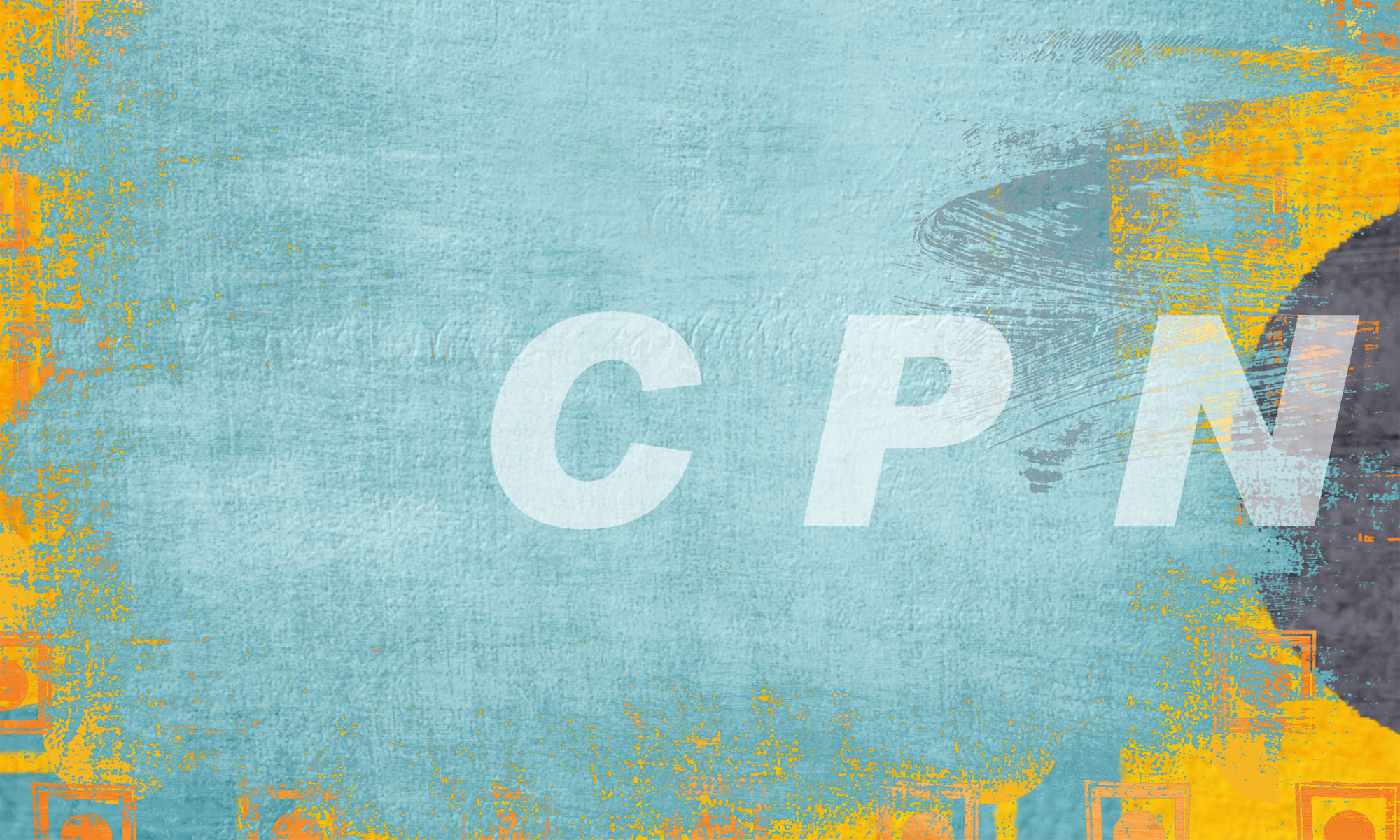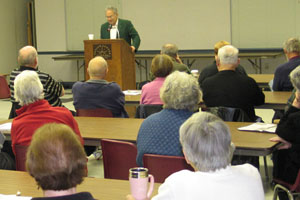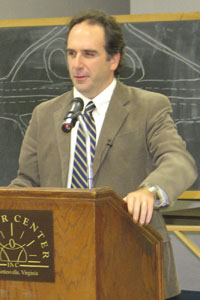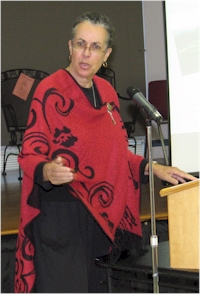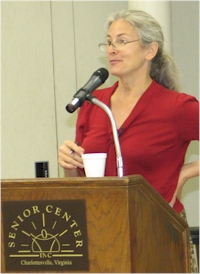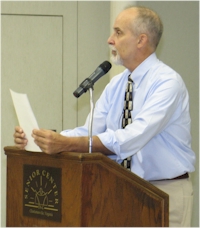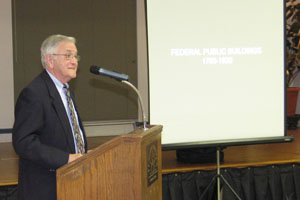
Ed Lay speaks to history enthusiasts at the Charlottesville Senior Center. This is the sixth and final part of this series.
Regular listeners of our podcasts might know Rick Britton. He’s a historian and cartographer and a frequent guest on WINA’s Charlottesville Right Now with Coy Barefoot. Rick also designs and hosts Virginia history programs for the Charlottesville Senior Center.
In the fall of 2010, the Senior Center offered one of Rick’s programs entitled “Virginia History 101.” Running from October 7th through November 18th, this six-session lecture series was designed for those interested in Virginia’s fascinating early history. The series focused on some of the big topics that dominated the Old Dominion’s first two centuries, including, Native Virginians, Tobacco, Slavery, the Revolution, George Washington’s Presidency, and Jeffersonian Architecture. The series was followed with a travel session where participants experienced Virginia history first hand.
The lecture for November 11th, “Jeffersonian (or Federal) Architecture,” was presented by Ed Lay, the Cary D. Langhorne Professor Emeritus of Architecture at the University of Virginia. A veritable font of architectural knowledge on the Old Dominion, Professor Lay has also taught abroad in Edinburgh and Vicenza. After a brief description of the differences between Georgian and Jeffersonian period architecture, Lay familiarizes the audience with the many structures designed by our third president, Thomas Jefferson–who introduced neoclassicism to the United States–as well as the many central Virginia homes influenced by his beautiful creations.
This is the sixth and final part for this series for 2010.
Click here to listen to all six lectures in this series:
* December 2, 2010 – The Monacan Nation – Rick Britton
* December 9, 2010 – Tobacco, The First Cash Crop – Susan Kern
* December 16, 2010 – Foodways of the Enslaved – Leni Sorensen
* December 23, 2010 – The Yorktown Campaign – Ed Lengel
* December 30, 2010 – Washington’s Presidency – David Hoth
* January 6, 2011- Architecture in the Jeffersonian Period – Ed Lay
